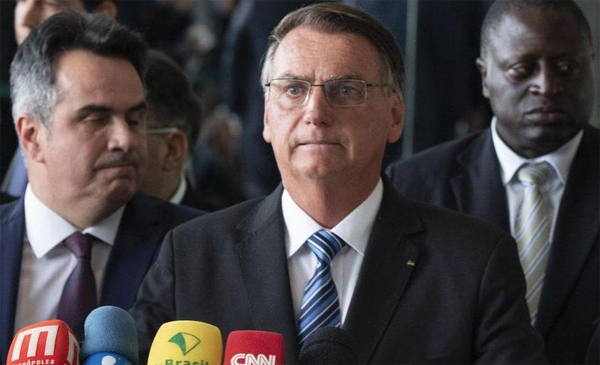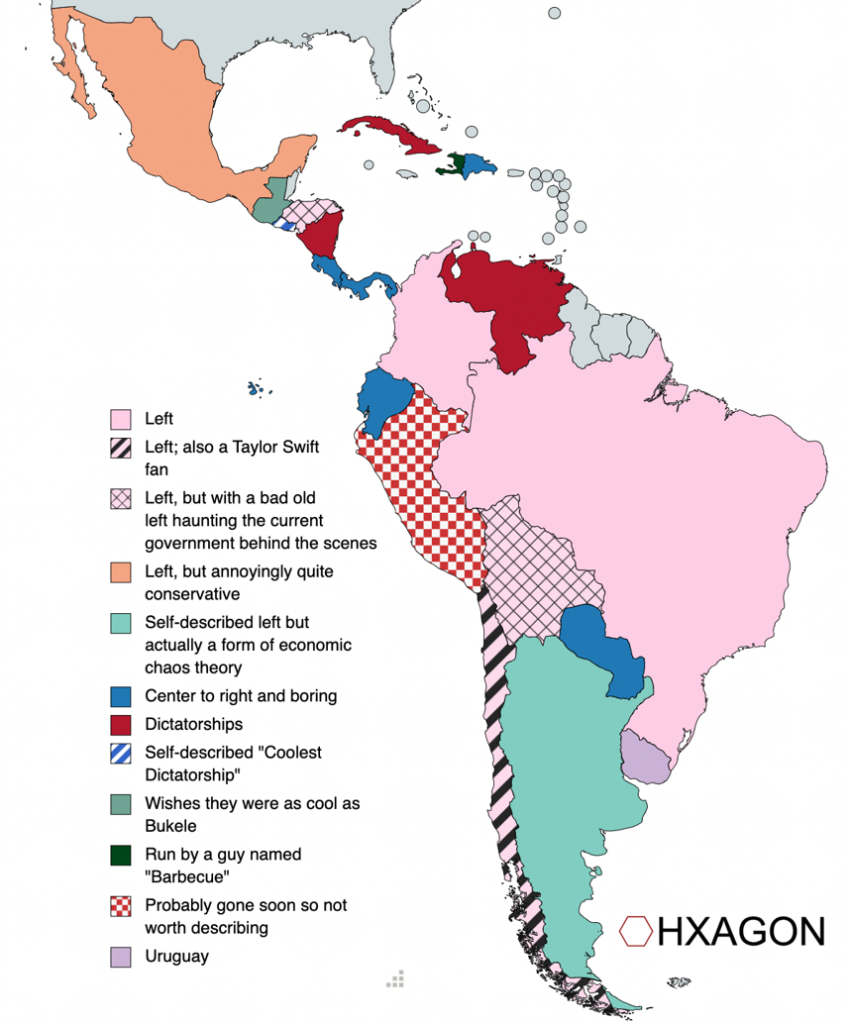
Brazilian President Jair Bolsonaro agreed to hand over power to president-elect Luiz Inácio Lula da Silva. But he carefully avoided conceding defeat or recognizing the validity of the runoff election held Sunday.
Bolsonaro defended supporters’ right to protest, though he called on groups demonstrating against the election to remain peaceful and avoid paralyzing movement and commerce. Bolsonaro supporters around the country have set up roadblocks, that the president said “are the fruit of the indignation and feelings of injustice in the electoral process.”
Brazil’s Federal Highway Police said it has disbanded 515 road blocks since Sunday, and that there are 164 blocks ongoing in 17 states. Protesters aim to cause gridlock, possibly necessitating military intervention and opening a path to overturn the election results. Folha de S. Paulo has characterized the blockades as part of a coup movement.
The protests have disrupted transportation and commerce across the country, as trucks carrying fuel, food and other goods have gotten trapped in the miles-long backups. They are reminiscent of truckers protests that paralyzed Brazil in 2018 and caused significant shortages.
Users on social media, including in multiple Telegram and WhatsApp chat groups, shared demands that the military take the streets, or that Congress and the Supreme Court be disbanded and the president remain in office. A military spokesman said yesterday that the blockades were a police matter.
Many observers voiced concern at what appeared to be initial police complacency with blockades. Bolsonaro is popular among the police forces’ rank and file. Yesterday Brazil’s Supreme Court ordered the federal highway police to immediately clear the roads. A majority of the court’s justices backed the decision, which accuses the highway police of “omission and inertia.”
Bolsonaro met with seven members of Brazil’s Supreme Court yesterday, before speaking publicly, and reportedly recognized defeat to them. “The president used the verb ‘to end’ in the past tense,” Judge Edson Fachin said. “He said: ‘It’s over.’ Therefore, [one must] look ahead.”
Bolsonaro and his lawmaker sons face potential criminal charges over allegations including bid-rigging and criminal mismanagement of the coronavirus pandemic. Brazilian media reports indicate that Bolsonaro had sought assurances from his party that it would pay him a salary, housing costs and lawyer fees.
(Folha de S. Paulo, Associated Press, New York Times, Reuters, Guardian, Washington Post)
More Brazil
- Brazil’s Centrão parliamentary bloc would likely collaborate with Lula’s legislative agenda if the president-elect doesn’t stand in the way Chamber of Deputies President Arthur Lira’s reelection bid. Lira was one of the first Bolsonaro political allies to recognize Lula’s victory on Sunday. (Folha de S. Paulo)
- Brazil’s president-elect is a long-term defender of democracy at home, but will have to prove his foreign policy pro-democracy credentials, argues James Bosworth in World Politics Review.
- Lula may “seek some room to maneuver by distancing Brazil from some of Bolsonaro’s foreign policy choices,” argues Scott Hamilton in Global Americans. “Brazilian diplomats are strong and can contribute to solutions to regional problems if allowed to work. They have access in some cases that U.S. diplomats do not have.”
Regional Relations
- Colombian President Gustavo Petro met with Venezuelan leader Nicolás Maduro in Caracas yesterday, marking a turning point in diplomatic approaches to Venezuela’s autocratic regime, as the region’s new wave of leftist governments (and the Biden administration) distance themselves from failed hardline approaches, reports the New York Times.
- “Even before this, the era of pressuring Maduro to democratize has been sort of waning,” said David Smilde, a senior fellow specializing in Venezuela at the Washington Office on Latin America told the Washington Post.
- Petro and Maduro discussed commercial relations, their shared border nd Petro’s suggestion that Venezuela return to the Inter-American Human Rights System, they told reporters after the meeting. (Washington Post)
- Cuba appears to be in the middle of a U.S.-Russia tug-o-war — again. Russia has shipped an estimated $352 million in oil to Cuba since the start of the Ukraine war, providing relief from debilitating blackouts, even as the Cuban government said U.S. sanctions are crippling the country’s ability to rebuild after September’s Hurricane Ian, reports the Associated Press.
- Mexico is a potential partner for the U.S. proposal for a rapid-action military force in Haiti, writes Jonathan Katz in Foreign Policy. (Other media reports have focused on Canada, which appears reluctant to send troops.) He notes a surge in Haitian asylum-seekers in Mexico, who last year outnumbered those from Honduras and nearly equalled all other sources of asylum-seekers combined.
- A broad coalition of civil society groups called on U.S. President Joe Biden to permanently discard the possibility of a military intervention in Haiti as the country descends further into chaos, reports The Hill.
Haiti
- The attempted kidnapping of three air traffic controllers over the weekend near the international airport in Port-au-Prince is raising concerns about the safety of Haiti’s airspace, reports the Miami Herald.
Ecuador
- Ecuadorean President Guillermo Lasso announced a curfew under a new state of emergency in Guayas and Esmeralda regions yesterday, amid a new wave of grisly gang violence, reports the Guardian.
Bolivia
- Bolivian President Luis Arce changed the country’s military leadership, and asked the new authorities to defend the constitution and the country’s elected government, in the midst of a wave of anti-government protests in the country’s Santa Cruz department. (EFE)
- Arce moved to mobilize troops against anti-government protesters on Monday. (Infobae)
Chile
- Chilean high school students have returned to the streets, demanding improved social policies in the wake of a plebiscite rejecting a new national constitution, reports the Guardian. The demands echo those that spurred massive social upheaval in 2019, and led to the failed attempt at constitutional reform.
- Chilean President Gabriel Boric announced a new national park in the Atacama dessert, after an unusual winter rainfall led to a floral bloom in the area, a rare phenomenon which occurs every few years. (Guardian)
Paraguay
- Members of the Paĩ Tavyterã Guaraní Indigenous community in Paraguay are demanding protection from the government and defense of their right to self-determination after two leaders — Alcides Romero Morilla and Rodrigo Gómez González — were killed during a confrontation between military troops and the EPP (Paraguayan People’s Army) in October. (See also ABC.)
Weather
- Tropical Storm Martin formed over the central North Atlantic on Tuesday, becoming the 13th named storm of this year’s Atlantic hurricane season and the second to form in two days. It was expected to become a hurricane today, reports the New York Times.
Regional
In case you haven’t seen Boz’s brilliant political map of the region, I’m including it here. And also his post on the challenges of mapping the region’s ideological landscape.

http://latinamericadailybriefing.blogspot











